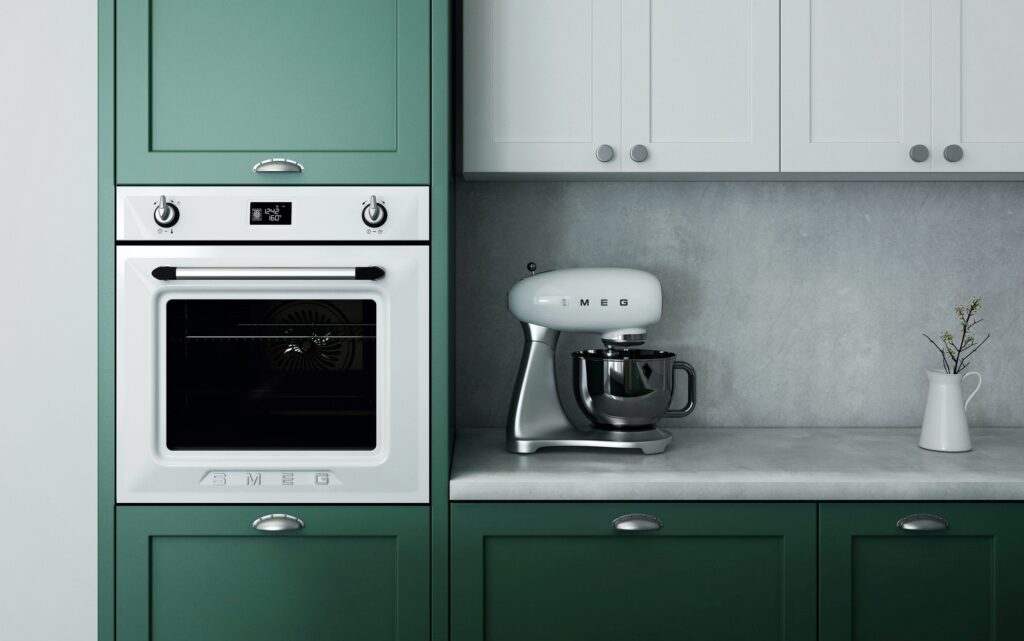
How Long Does a Home Warranty Last?
Whether you have just recently bought a home or have lived in your current home for years, you should consider obtaining a home warranty service agreement, which ensures that the major appliances in your home are covered in the event that they malfunction or start to operate less efficiently. A home warranty will cost you around $300-$600 per year, which can save you a considerable amount of money by allowing you to avoid costly appliance repairs.
When you purchase a warranty, this agreement should provide you with coverage for a year, after which you can decide to renew the plan or drop it altogether. These warranties cover system and appliance breakdowns as long as these malfunctions don’t result from misuse.
The amount of time it takes for coverage to begin largely depends on when you purchase the home warranty. If you buy this warranty while you’re purchasing a home, coverage will begin on the closing date. Buying a home warranty after you own a home means that you’ll need to wait for 30 days before you’re covered.
If you already have a warranty and it’s about to expire, you should renew it at least 30 days before it’s set to expire. In the event that the warranty will end in less than 30 days, a 30-day wait period will be necessary before coverage restarts. The following covers the basic details of home warranties and how long they last.

Why Purchase a Yearly Home Warranty Service Agreement?
There are many reasons why you should think about obtaining an annual home warranty service agreement, the primary of which is that the many systems and appliances in your home will break down at one point or another. Even if you’ve just recently built your own home with new appliances, having a home warranty service agreement will allow you to protect your investment.
As mentioned previously, a home warranty costs around $300-$600 per year, which is just $25-$50 per month. Without a home warranty, repairing a major system or appliance in your home can cost thousands of dollars. Your savings could be quickly depleted if more than one appliance malfunctions during the year. A home warranty allows you to mitigate these issues and keep costs down.
While homeowners insurance covers significant damage to your home, this coverage doesn’t extend to some of the more common mechanical problems. If your HVAC unit isn’t pumping out cold air during the hot summer months, your home warranty should cover the necessary repairs. Keep in mind that even newer appliances and built-in systems can malfunction, which is why every homeowner should consider obtaining one of these warranties. A few additional reasons to think about purchasing a home warranty include:
- You’re currently buying a home – When you’re buying a home, it’s impossible to be 100% certain about the condition of every system and appliance in the property. Home warranties allow you to cover any unexpected costs that might arise during your first year of owning a home.
- You bought an older home – While older homes have an ample amount of character, they’re also built with older materials, which increases the possibility of structural defects, roof leaks, and appliance malfunctions. Home warranties should be able to cover these issues.
- You don’t have experience doing these repairs yourself – While some homeowners are able to fix practically any problem they find in their home, this isn’t the case with most property owners. If you don’t want to take time to find do-it-yourself articles and videos for repair work, having a home warranty is beneficial.
- You don’t have time to handle repairs – In the event that you have a busy schedule and don’t have time to complete repair or maintenance work on your own, it may be best to obtain a home warranty, which should give you access to a network of reputable service technicians.
What Does a Yearly Home Warranty Cover?
When you purchase a yearly home warranty, coverage should extend to the major appliances and systems in your home, which include everything from your furnace and air conditioner to your refrigerator. If a malfunction occurs during standard use of the system, the inspection and repair costs should be covered completely. However, the exact amount of coverage may depend on any limits in your home warranty service agreement.
Once you submit a service request, workers should be dispatched within 48 hours, after which the issue will be diagnosed and repaired. As touched upon previously, these warranties only cover standard malfunctions, which means that any malfunctions resulting from misuse won’t be covered. Warranties don’t extend to pre-existing issues either.
If the repair fails, the majority of home warranty providers offer free service for the same issue if it occurs within 30 days after the initial repair. A small selection of home warranty providers will offer free service if the repair fails within 60 days following the initial work.

When Does Home Warranty Coverage Begin?
When you first obtain a home warranty, there will be a 30-day waiting period before your coverage kicks in. On the other hand, this waiting period can be bypassed if you’re purchasing a warranty when buying a home. In this situation, coverage starts on the day of closing.
The reason for the initial waiting period is to make sure that the homeowner doesn’t have any pre-existing breakdowns that they are attempting to fix with a new warranty. Home warranty providers want to be certain that they are covers malfunctions and issues that result from old age or standard wear and tear. Even though a 30-day waiting period is standard, some companies offer different waiting periods. It’s possible to purchase a home warranty with a 10-day waiting period.
If one of your appliances breaks or malfunctions around three weeks after you’ve purchased the home warranty, you will be tasked with paying for repairs on your own. Keep in mind that only 17% of all home warranty providers begin service sooner than the 30-day period.
While there are a few companies that don’t require a waiting period before providing coverage, the home warranty itself will cost more in this situation. Along with higher premium costs, you could be required to pay higher repair costs or a larger service call fee if there isn’t a waiting period.
What to Do When the Home Warranty Is About to Expire?
If you find that your home warranty is getting ready to expire, there are a couple steps you can take. Keep in mind that the majority of home warranty service agreements are designed to last for a single year, after which they can be renewed for another year. It’s common for home warranty providers to automatically extend coverage at the end of the 12-month period, which is a convenient solution that ensures you always have coverage.
If you don’t find the warranty useful, you can simply allow the warranty to lapse, after which you will no longer be required to pay monthly premiums. In the event that you want to renew your plan but find that your plan doesn’t provide automatic policy renewals, make sure that you know the exact expiration date. If you want to continue using these services with your current plan, you will need to renew the warranty before it expires.

Nearly 40% of all home warranty providers allow homeowners to cancel automatic renewal within the 30-day period before the contract ends. Less than 5% allow homeowners to cancel their warranty within 60 days. Keep in mind that different plans have different terms and restrictions. For instance, some annual warranties can only be renewed a certain number of times. Whirlpool has a warranty limit that sets the maximum renewal at 10 years, after which you’ll no longer be able to have a warranty.
As was talked about earlier, you should try to renew your home warranty before the last 30 days of the existing warranty, which means that there won’t be any coverage gaps. If you decide to renew when there are between 1-30 days left on your current warranty, you’ll need to wait for 30 days before your new warranty begins.
With this information in mind, you should have a better understanding of the amount of time a home warranty typically lasts as well as what you need to do when your warranty is about to expire. Before purchasing a home warranty from any provider, it’s highly recommended that you thoroughly read the contract, which should give you confidence that you’re making the right decision before actually signing the papers.
When reading through the contract, it’s important that you know all of the terms and details pertaining to the agreement. If you know what your warranty covers and what it doesn’t cover, you shouldn’t find yourself in a situation where unexpected costs arise that you’re unable to pay for.

Jason Somers, President & Founder of Crest Real Estate
With over 15 years of professional experience in the Los Angeles luxury real estate market, Jason Somers has the background, judgement and track record to provide an unparalleled level of real estate services. His widespread knowledge helps clients identify and acquire income producing properties and value-ad development opportunities.
Learn more about Jason Somers or contact us.



